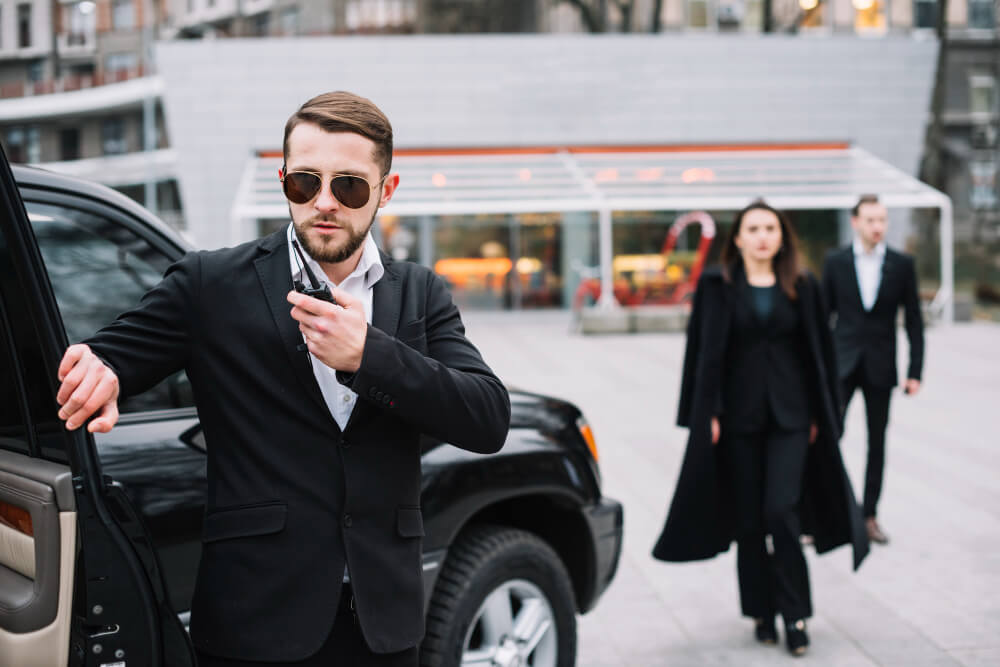Personal Injury Claims for Injuries By Bouncers Or Security Guards On New Year’s Eve
Louisiana knows how to throw a party.
Many wonderful New Year’s Eve celebrations are happening all across the state.
Whether you want to celebrate with the children, friends, or the special someone in your life, there is simply no better place to usher in the new year than Louisiana.
The Pelican State boasts some of the country’s best clubs, bars, and restaurants, making it a premier destination for New Year’s Eve.
Louisiana nightclubs and bars offer New Year’s revelers many options for welcoming 2024 in style.
However, a fun night out can quickly turn into a nightmare when a negligent business owner fails to take reasonable steps to protect patrons.
Security guards and bouncers must protect patrons from unruly guests, prevent assaults and theft, and handle troublemakers without causing injuries.
When trouble starts at a bar or nightclub, a bouncer’s or security guard’s job is to intervene and stop it.
Louisiana law allows security staff to use reasonable force, especially when dealing with violent or intoxicated people. Security staff can briefly detain a crime suspect until the police arrive.
Many bars and nightclubs hire unlicensed security guards to work as guards and bouncers. Some even use gang members or convicted felons as security guards and bouncers.
These unlicensed and untrained security guards and bouncers do not react appropriately or overreact with unnecessary force when a situation arises.
The bar or nightclub is liable for damages when unqualified guards or overly aggressive bouncers cause injuries.
Intentional Torts
Security guards and bouncers in Louisiana have a legal duty of care to act reasonably. This duty of care requires them to take reasonable steps to maintain a safe environment and deal well with the public.
The use of physical force is a job requirement for security guards and bouncers. There is a thin line between reasonable force and excessive force. When security guards and bouncers cross it, they are liable for intentional tort claims.
When a security guard or bouncer oversteps their authority and physically injures a guest, such an injured guest may have a right to compensation.
Assault, battery, discrimination, sexual harassment, and false imprisonment are the types of intentional tort claims commonly brought against security guards and bouncers.
Excessive Force
A security guard or bouncer in Louisiana may use a restraining hold on a person to break up a fight or forcibly remove them from the premises. If an individual has broken the law, the bouncer or security guard may detain them until police arrive.
Excessive force may include:
· Subduing a patron by kicking, choking, bludgeoning, or repeatedly hitting them with fists
· Body slamming or dragging an individual on the ground
· Using a weapon such as a baton or Taser
· Smashing an individual’s head against a wall or the ground, kneeling on their neck, or employing punishing holds, like twisting an arm to dislocate a shoulder or break a bone
· Verbally abusing an individual with racial or ethnic slurs
· Unlawfully detaining an individual trying to leave the premises
Security guards and bouncers have the right to:
· Issue oral warnings
· Ask disruptive patrons to leave if they cannot abide by the rules of an establishment
· Check identification and refuse entry to underage or intoxicated individuals
· Protect other patrons and bystanders from violence
· Employ reasonable amounts of force to contain individuals in the act of committing a crime
· Call the police to remove individuals or intervene in physical altercations
Common Bar And Nightclub Injuries
Common examples of bar and nightclub injuries that may entitle victims to fair compensation include:
· Concussion or Traumatic Brain Injuries (TBIs)
· Lacerations and contusions to the face
· Facial bone fractures
· Broken arms and dislocated shoulders
· Spinal Cord injuries
· Internal organ damage – spleen, liver, lung, or bowel injuries.
· Fractured pelvis
· Post-Traumatic Stress Disorder (PTSD) after experiencing or witnessing a traumatic event or injury.
Liability In Security Guard Or Bouncer Assault Cases
Louisiana premises liability law requires property owners, managers, and lessees to uphold a duty of care to visitors and patrons.
Louisiana bars and nightclubs must protect or warn visitors from known hazards. They must also take reasonable steps to protect visitors from foreseeable criminal actions by third parties. These steps include screening for weapons and refusing to serve alcohol to intoxicated patrons.
Bar and nightclub operators may be liable for negligent hiring, retaining, or supervising employees.
It is illegal for all businesses in Louisiana and through federal laws to discriminate against any individual because of their gender, gender identity, or sexual orientation. If bar or nightclub employees violate these laws, the business owner may be liable for their behavior.
In a personal injury claim involving excessive force by a security guard or bouncer, the injured person must prove that the defendant acted violently.
Security guards and bouncers possess no legal right to physically remove or detain individuals except when acting in self-defense or protecting the safety of other patrons.
If the bouncer or security guard’s aggression causes a patron’s injuries, the guard or the guard’s employer may be financially liable.
Contact A Louisiana Personal Injury Lawyer
At Bart Bernard Injury Lawyers, our lawyers possess the expertise to identify prior violent incidents in a bar or nightclub. A pattern of violence is potent evidence in establishing liability.
Our lawyers know how to obtain a settlement. No nightclub or bar wants the publicity of a court case about patrons being victims of assault and suffering injuries through the use of unreasonable force.
If you or a loved one have been the victim of nightclub violence on New Year’s Eve, consult with an experienced lawyer at our Louisiana personal injury law firm immediately.
Call now to get a free case consultation.





